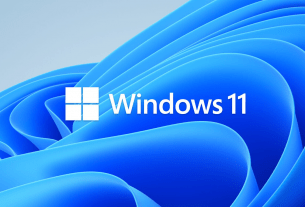Cybercriminals could target the popular event with ransomware, phishing or DDoS attacks in an attempt to increase its notoriety or make money.
ESET ECUADOR – A warning issued by the FBI about risk actors that could try to disrupt the upcoming Tokyo 2020 Olympic Games. It mentions that cybercriminals could use various techniques, such as distributed denial of service (DDoS) attacks, ransomware or social engineering to affect the Olympics.
Without good, for now, there have been no signs of an attack on the popular sporting event. «The FBI to date is not aware of any specific cyber threats against these Olympics, but encourages partners to remain vigilant and maintain best practices in their digital and network environments,» the FBI said.
The Office noted that large-scale popular events attract various types of cybercriminals, allowing them to pursue different agendas, ranging from making money and increasing their notoriety, to sowing confusion.
The 32nd edition of the Olympic Games could prove especially attractive to threat actors as due to the COVID-19 pandemic, viewers are largely excluded from venues and the event will only be viewed via streaming platforms. or digital display.
“Adversaries could use social engineering and phishing campaigns in the run-up to the event to gain access or use previously gained access to implant malware to disrupt affected networks during the event. Social engineering and phishing campaigns continue to provide adversaries with the necessary access to carry out these types of attacks, ”warned the federal law enforcement agency.
Beyond phishing and social engineering attacks, cybercriminals could also resort to using ransomware or DDoS attacks to target Internet service providers and TV broadcast companies to disrupt live broadcasts of various sports disciplines. Cybercriminals could also attempt to paralyze the Olympics by targeting the various elements that make up its infrastructure, such as public transportation providers, hotels, and event security infrastructure.
The FBI shared advice on how service providers could mitigate the risks of such attacks. This includes the creation and establishment of business continuity plans to reduce the chances of service interruptions in the event of an attack and regular monitoring of networks and the application of best practices, as a substantial part of the workforce has transitioned to remote work environments and employs the use of virtual private networks.
As for users who want to enjoy the broadcasts of the event, ESET warns about the existing dangers and how cybercriminals take advantage of massive events to spread their attacks. Therefore, below, it offers a series of tips to be protected against these types of threats:
Recommendations
- Always access official broadcasts: A golden rule in cyberspace is to browse those sites that are authentic and endorsed by a recognized organization. Whenever the user wants to see an event live, he should inquire if there is a broadcast on the event’s official site: more and more organizations offer very good quality broadcasts and more and more are offered for free. It is important to try to avoid web searches with words such as «online» or «free» since the results that will be obtained can lead to different types of sites: from those that only seek to obtain clicks and that do not contain any real transmission, to that can download malware onto the user’s computer. Additionally, it is worth mentioning that several television channels offer their live broadcasts on their sites completely free of charge.
- Having a security solution installed: it is not always enough to be cautious when browsing: it is necessary to have a backup, with a security solution that protects all devices and their systems against attacks that can occur simply by visiting an infected website.
- Keep the browser and its add-ons updated: it is essential to always have the most recent versions of the different applications. The updates correct security problems: if the user does not have these updates installed, these problems will be present on their computer without solving. However, it is necessary to note that some malicious sites try to trick users into downloading fake security updates that actually consist of malware. For this reason, each of these add-ons should always be updated, as well as the browser, from the official sites or through their auto-update tools.
- Avoid transmissions from insecure sites: many blogs can be found that are created exclusively for the purpose of transmitting events of various kinds, generally of a sporting nature. In fact, it is common that if a web search is carried out for the transmission of an event, a large part of the results direct the user to blogs with streaming. If the user is not protected, sometimes they can be infected by simply visiting a compromised site, even if they do not click or interact with any element of the site.
Acerca de ESET
Desde 1987, ESET® desarrolla soluciones de seguridad que ayudan a más de 100 millones de usuarios a disfrutar la tecnología de forma segura. Su porfolio de soluciones ofrece a las empresas y consumidores de todo el mundo un equilibrio perfecto entre rendimiento y protección proactiva. La empresa cuenta con una red global de ventas que abarca 180 países y tiene oficinas en Bratislava, San Diego, Singapur, Buenos Aires, México DF y San Pablo. Para obtener más información, visite www.eset-la.com o síganos en LinkedIn, Facebook y Twitter.
Datos de Contacto de Comunicación y Prensa
Para más información se puede poner en contacto a través de: Carolina Bueno, Relaciones Públicas a comunicacion@eset.com. o al 0998605919
Copyright © 1992 – 2021. Todos los derechos reservados. ESET y NOD32 son marcas registradas de ESET. Otros nombres y marcas son marcas registradas de sus respectivas empresas.




